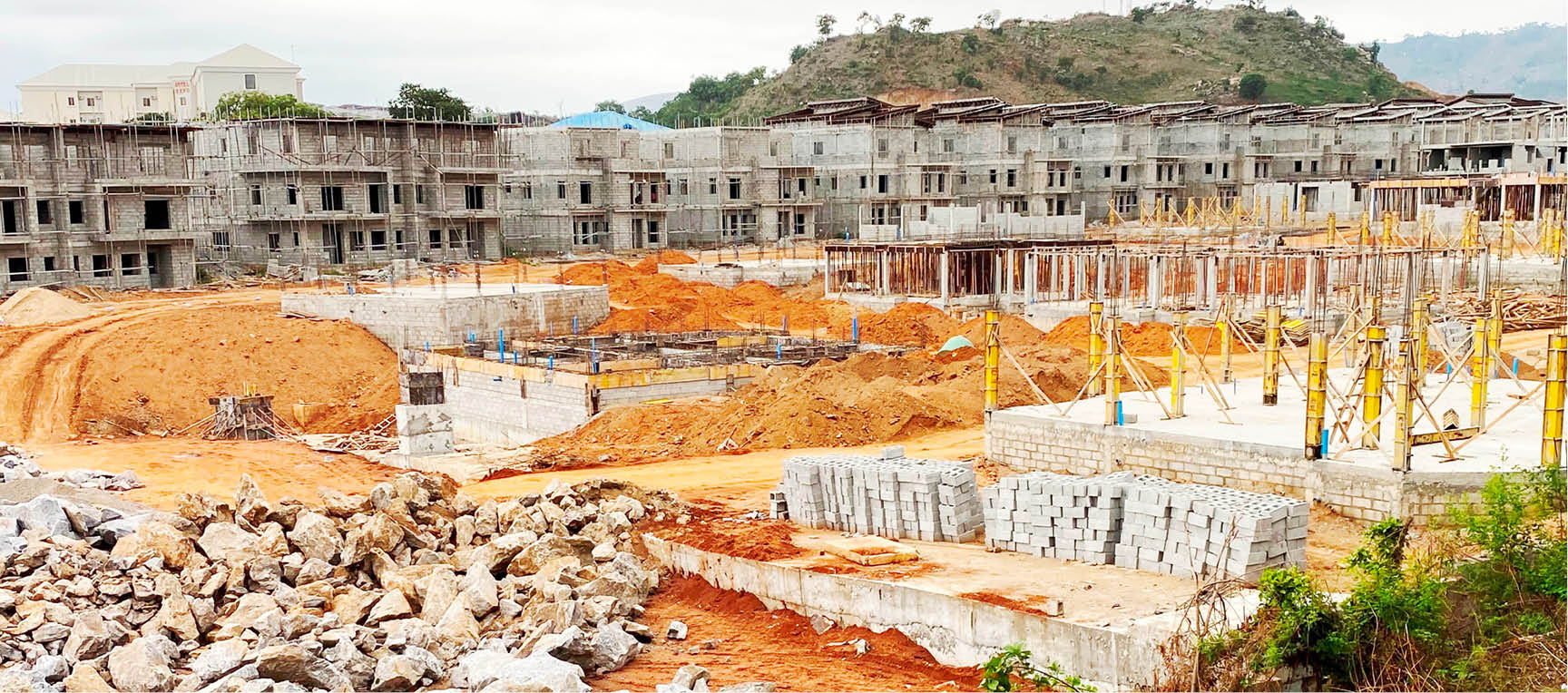- They’ll be empty for many years — Observers
Even though the cost of building materials have gone up significantly in the last few years, it is still a common sight to see new estates springing up in many districts of the Federal Capital Territory (FCT), hence empty estates dot the territory, with some being occupied by few people, especially domestic workers and security men, and in some cases criminal elements.
Many of the estates built in the past few years are located at Kado, Airport Road, Gwarimpa, Katamkpe, Life Camp and other areas. Aside these empty estates, empty houses are found in Asokoro, Maitaima, Wuse II and other districts.
- How support tools, others can uplift 41.5m MSMEs
- Why PDP may not wrest power from APC in Ekiti – Sen Olujimi
Some Nigerians, especially on their social media handles, explained the different reasons why the estates are empty and will remain so for many years to come.
According to an Abuja resident, Kanu Obinna, “The developers are only interested in building big houses that the regular people can’t afford. So they are left empty for many years.”
Obinna said what the people needed were small apartments such as “studio apartments, one and two-bedroom apartments and not massive terraces and duplexes.”
Agreeing with Obinna is Amos Amali who stressed that there were so many empty houses and estates in Abuja because people could not afford them, pointing particularly to the “cost of building materials” which “is too high” to be a major factor driving the prices of the housing units.
Amali lamented that, “The developers, builders and engineers are not even looking for alternative building materials that will make houses affordable to Nigerians.”
A builder, Nwabonyi John, said, “I have worked as a builder for 20 years but have never met a desperate cost of building materials as it is in the Nigerian market today.”
The situation has made many Nigerians like Adamu Hayatu to foresee a bleak future for the real estate sector because “considering the high cost of building materials, it’s safe to say that affordable housing in Nigeria is a mirage.”
“Builders are struggling to continue projects with uncertain timeframes as supply and cost of materials remain unpredictable,” Adeyinka Ridwan said on his Twitter handle.
Similarly, Cheto Abraham who once worked with a real estate company in Abuja, blamed the dynamics in the building sector for most of the unaffordable houses in the country’s mega cities.
“When a developer borrows money from the bank to buy land, which you know in Abuja is expensive, then somewhere in the middle of construction, the cost of materials shoot up and he goes back to borrow more money to complete it. You certainly don’t expect such developer to sell those houses cheaply. All things being equal, he has to take into consideration all the variable costs in the construction of such estates. This will certainly affect the cost of the housing units which the consumers will certainly bear the brunt,” Abraham explained.
On the way forward for the housing sector, Mazi Cherenna Ezenwafor suggested that the National Assembly should come up with a law that would check the high cost of building materials and land in Abuja and other parts of the country.
However, even at that, many believe that the way forward is for government to have a robust master plan for the sector which will attract key players from the financial sector and very friendly interest rates regime that will bring down the prices of houses.

 Join Daily Trust WhatsApp Community For Quick Access To News and Happenings Around You.
Join Daily Trust WhatsApp Community For Quick Access To News and Happenings Around You.


